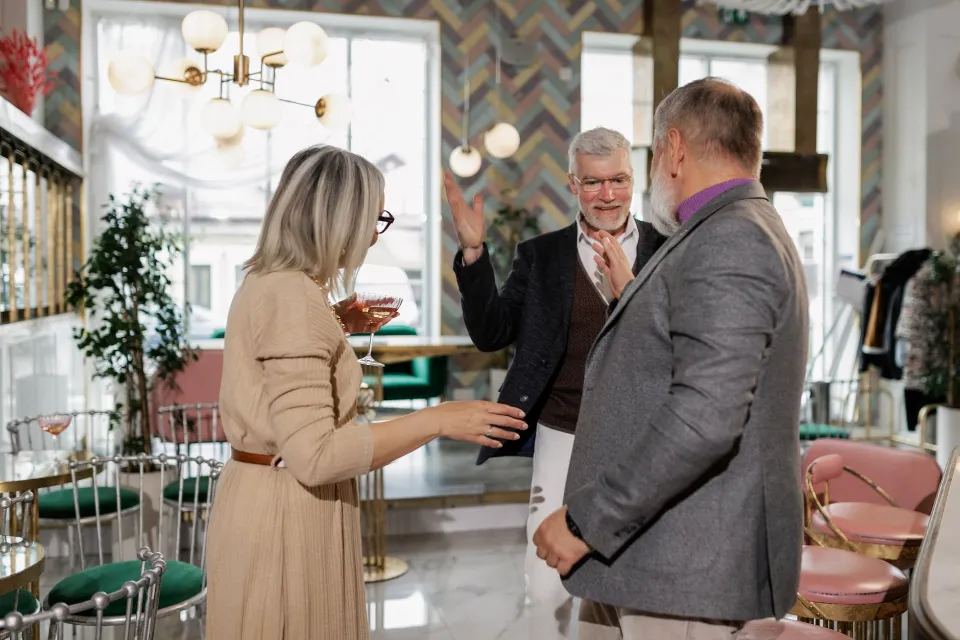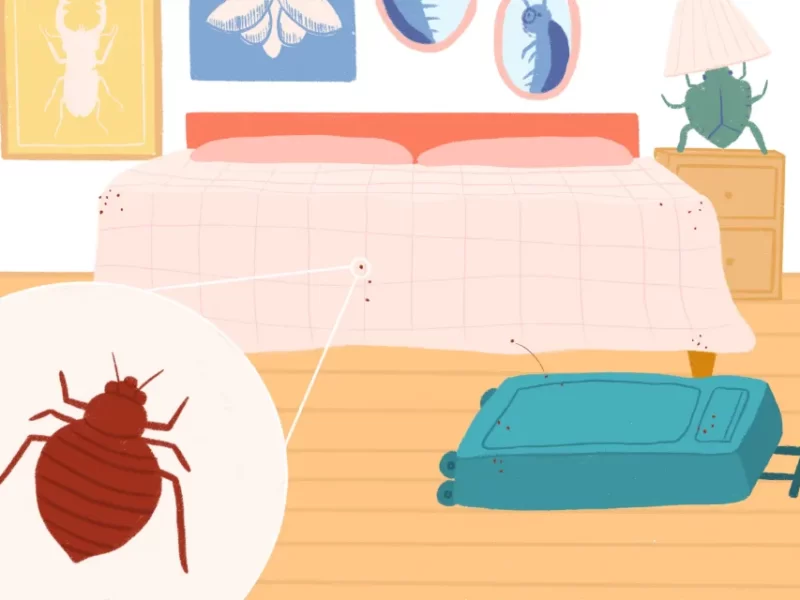Kenya is a multilingual nation. According to Ethnologue, there are 62 languages spoken in the nation, even though Swahili and English are the official languages. These languages are primarily spoken by descendants of immigrants from outside the country (i.e., Africa), along with a few languages from the Middle East and Asia. African languages are divided into three language families: Bantu (spoken in the center and southeast), Nilotic (spoken in the west), and Kush (spoken in the northeast).
Elders are given a lot of respect in Kenya. Usually, the youngest person in the group will greet the elder with “Radhi, karibu” (hello, welcome), then shake hands gently, and then greet elders with their name, such as “The rest of the group will say in unison, “Good morning, John.” After the initial greeting is exchanged, any other conversation will take place. In Kenya, it is polite to greet elders with “Jambo, [elder’s name]”.
In the following, you will learn how to greet elders in Kenya and some of the things you need to be aware of.
Kenyan Society and Culture
The Kenyan People
- Kenya is not an ethnically homogeneous nation.
- With an additional 27 smaller groups, Kenyans are primarily made up of 13 ethnic groups.
- ‘Bantu’ tribes like the Kikuyu, Luhya, and Kamba make up the majority of Kenyans.
- There are also “Nilotic” tribes like the Luo, Kalenjin, Maasai, and Turkana.
- The ‘Hamitic’ people include the Turkana, Rendille and Samburu.
- Around 13% of the population are of non-African descent, i.e. European, Asian, and Arab.
Religion
Freedom of religion is guaranteed by the Kenyan Constitution. 10% of people are Muslims, 10% are Christians, and small Hindu and Sikh minorities make up the remaining population.
The majority of the population adheres to traditional African beliefs, which are frequently animist. Christians tend to be concentrated in the western and central sections of the country while Muslims cluster in the eastern coastal regions. Native beliefs are frequently incorporated into traditional religion among Kenyans.

Family
The social structure is based on the extended family, as one might anticipate in a group-oriented culture. It consists of close friends and family members from both sides of the family. When the husband’s parents grow older and are unable to care for themselves, they frequently move in with the nuclear family. People join their families when they get married, ensuring that there will always be a group to turn to in times of need.
Greetings Etiquette in Kenya
Common: Handshake
Handshake is the most common greeting. Following the handshake, it is customary to inquire about the other person’s health, family, employment, and any other information you may know about them.
The handshake is longer when extending a greeting to someone you know personally as opposed to a passing acquaintance. Once a personal connection has been made, you may be able to refer to someone by their first name alone, first name with a nickname, or both. Wait for the Kenyan to acknowledge the closeness of your friendship.
Islam prohibits handshakes between men and women and men and women.
Female: Kiss Check
Instead of shaking hands, close female friends may hug and kiss each other once on each cheek. Women over the age of 21 are often addressed as “Mama” and men over the age of 35 are often addressed as “Mzee”. Even when there is no family connection, children frequently address adults as Aunts or Uncles.
Elders: Grasp the Right Wrist With the Left Hand While Shaking Hands
When greeting elders or someone of higher status, grasp the right wrist with the left hand while shaking hands to demonstrate respect. The most common greeting is “Jambo?” (“How are you?”), which is generally said immediately prior to the handshake.
Before traveling to a Swahili-speaking country, it’s important to be familiar with the greeting shampoo, which is only used for elders. It is a sign of respect, and shows that you are willing to listen to and learn from those who are more experienced than you.
These are general polite greetings that are used at specific times of the day and can be used in any circumstance. For example, “Good morning” is a greeting you would use when you greet a colleague or manager as you enter the office in the morning. “Good day” can be used as a general greeting at any time of day, while “good afternoon” and “good evening” are more specific greetings for the afternoon and evening, respectively.

Greeting Precautions in Kenya
It’s critical that you understand what the locals in Kenya consider to be disrespectful in addition to how to greet your elders there. They include:
Refusal of Hospitality
The practice of hospitality is deeply ingrained in society. Visitors can anticipate food and drink wherever they go. The customary behavior is to accept a plate of food or a cup of tea. How are elderly people in Kenya greeted? It is impolite to decline a meal that your guest has offered.
Asking People’s Tribes
Never enquire about the ethnicity of a Kenyan. Kenyans are proud of their ethnicity, but it does not define them. Particularly young people prefer to identify themselves first and foremost as Kenyans.
Because of this, even if you are not intentionally stereotyping someone, asking them about their tribe might be interpreted as such. But, you can always ask about the country’s 42 tribes.
Not Complying With Security Checks
Due to the rise in terrorist activity throughout the world, including in Kenya, security checks at building entrances are crucial. When you’ve searched, an electronic wand is passed over your body and bag. Therefore, refusing a security check is a sign of disrespect.
Summary
In Kenyan culture, it is customary to greet elders first as a mark of respect. The most common greeting is “Jambo!” followed by the elder’s name. It is also considered polite to ask an elderly person how they are doing. In Kenya, it is customary to greet elders with a bow and the words “Dear Sir/Madam”. Bowing occasionally conveys more respect. Initiating the greeting is frequently done by younger people. You still need to be mindful of a few things, though, in order to avoid upsetting anyone.
FAQs
What is the Etiquette in Kenya?
The right hand or both hands are used to pass and accept items. It is considered improper to carry out such tasks with just the left hand. Taking photographs of another person without permission is frowned upon, particularly in rural areas.
What is Considered Polite in Kenya?
It’s usually considered polite, while someone is speaking to you at length, to grunt in the affirmative, or say thank you at short intervals. Breaks in conversation are filled with more greetings.



